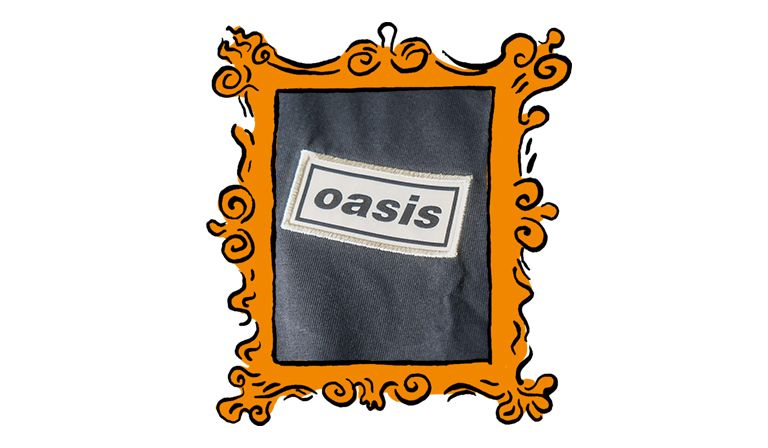Some months ago, in the toothpaste aisle of a north London Waitrose, I found myself standing next to a fifty-something man who was dressed like Noel Gallagher. How strange it is, I thought, that for a certain generation of men, dressing like Oasis remains such an appealing sartorial direction.
When, somewhat inevitably, it transpired that my fellow shopper actually was Noel Gallagher, my thoughts shifted only slightly. Why, I wondered, had Gallagher himself still clung so fiercely to the aesthetic of those years? Why do we all find it so hard to let this band go?
It has, after all, been a long time. Oasis split, in a storm of majestic acrimony, in 2009. The brothers at the heart of the band moved on to other projects. But ever since, every interview with Gallagher has led to one question: what are the odds of Oasis getting back together? I asked it myself when interviewing his brother, Liam, earlier this year, and was told the younger Gallagher would be delighted if fraternal relations thawed enough to play music together again. “One hundred per cent. He’s my brother, I love him,” he said.
This week’s announcement of an Oasis reunion—complete with gigs in Cardiff, Edinburgh and Dublin, plus four nights in Manchester and four nights at Wembley—was, then, greeted with a kind of national ecstasy. There were newspaper covers, radio discussions, endless memes. Fans steeled themselves for this weekend’s ticket launch, prayed for a fair wind and, failing that, more dates.
Plenty of acts plough the heritage circuit these days, but few tours have been more anticipated on this isle. Oasis are one of the best-selling acts of all time—75 million records, eight UK number one singles, eight UK number one albums, multiple awards.
And the timing of this return has been smartly calculated—three decades after their debut, when their target demographic still feels limber enough to stand for an arena show. As some have pointed out, an Oasis reunion is the middle-aged male equivalent of a Taylor Swift Eras Tour, albeit with a considerably smaller back catalogue and (probably) fewer sequins.
Still, there is a difference. The scale of Swift’s enterprise is almost unfathomable, her success crosses borders, time zones, generations. Follow the arc of her career and, even if you remain unmoved by the music, it’s hard to deny either the juggernaut of her ambition or her status as some kind of creative mastermind.
By contrast, there has always been something almost prosaic and wilfully provincial about Oasis. When they arrived on the scene in the mid-1990s, I was a teenager living not far from their home in Manchester, and they looked and sounded like pretty much every boy I knew.
To wave Oasis’s success through as simply part of the great surge of Britpop and Cool Britannia is to deny the part the band played in a new kind of working-class regional pride. In the North, I watched nightclub dancefloors thin out whenever Blur or Suede were played. At the record store where I worked, crowds spilled out the door on the release of (What’s the Story) Morning Glory?, while the Blur records sat untouched.
There was never anything daring or avant garde about their wardrobe (polo shirt, mod hair, Mancunian cagoule). It was more about the way it was worn—as if you had swagger, as if you were cock of the walk, as if you belonged anywhere. It was a similar story with their music. Thirty years ago, there was nothing terribly new about the sound of Oasis; upon dissection it proved a sort of meat and potato Madchester. Yet those early songs felt electrifying.
That they met with success was attributable to that combination of recognisability and defiance. To the sense that in their ordinary appearance, wisecracks, familial squabbles, in their echoes of the Beatles and the Stone Roses, and in their dreams of rockstar excess, they were singing for all of us. It should not be surprising that they never truly cracked America; the conversation they were having was always more internal, run through with the nuances and resentments of class, region, race, gender. Something in their music and their demeanour seemed to give voice to a section of society that felt unheard.
The appetite for an Oasis reunion has been steadily growing and stood at its peak before this week’s announcement. The moment seems ripe. In the air flickers something now of that old 1990s optimism, a new Labour government, of a country resetting itself.
But there rises now, too, a wave of new resentments, fears, tensions; and, as the recent riots attested, another section of society that feels overlooked. Rare is the band that could reach across such divides, but in an Oasis reunion we find such strange unity.
The Oasis reunion—why now is the moment
The Gallaghers are back together. And at a time when we could all use some togetherness
August 29, 2024

© Amer Ghazzal / Alamy








